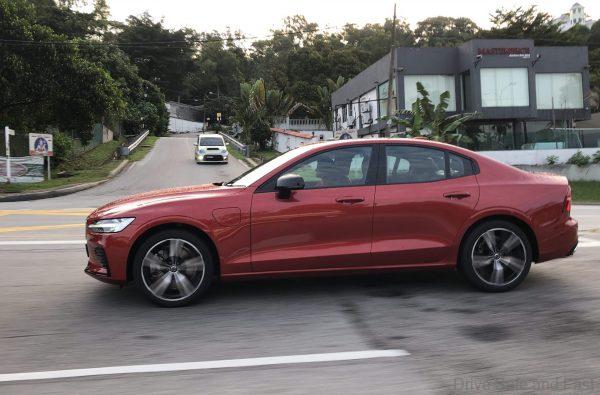For the Malaysian premium car buyer, branding is sometimes more important than the quality and drive dynamics of the vehicle. If your business rival drives it, then you must drive it as well to show your business success. If your neighbor drives it, then you must drive it also.
And this is why we are looking at Volvo in this article. Volvo cars were very much the segment leader in Malaysia in the 1960s to 1970s. By the 1980s Mercedes-Benz had taken a strong lead and soon after BMW came along. Big budget events and advertising put the German brands ahead and Volvo’s owners were not marketing savvy people at the time.

Then came boxy designs and that ‘uncle’ image. The Germans made sedans were getting exciting and they added spiciness to their products.
Volvo’s at that time lacked flavor and fell out of favor with Malaysians. Then Ford bought over Volvo Cars and this led to years of ‘lumpy’ engines and old technology in a strong and safe shell. But it was excitement that buyers wanted and so Volvo became a small player in this growing segment.
Then in 2010 all that changed with Geely’s takeover of Volvo Cars and today we have exciting sedans like this all new Volvo S60 T8 pictured here below.

PRESS RELEASE: The first Volvo car rolled off the Gothenburg production line in Sweden in 1927. Since then, Volvo Car Group has been a world-leader in safety technology and innovation. Today, Volvo is one of the most well-known and respected car brands in the world with sales in about 100 countries.
Volvo Car Group (Volvo Cars) is owned by Zhejiang Geely Holding (Geely Holding) of China. Volvo Cars formed part of the Swedish Volvo Group until 1999, when the company was bought by Ford Motor Company. In 2010, Volvo Cars was acquired by Geely Holding.
The ‘Volvo’ name is owned by Volvo Trademark Holding AB, which is jointly owned by Volvo Cars and Volvo Group.
Volvo cars are marketed and sold by regional market companies and national sales companies through approximately 2,300 local dealers in about 100 countries. Most of the dealerships are independent companies. As of December 2019, Volvo Cars had around 41,500 full-time employees around the globe.
Volvo Cars sells premium-segment car models in three segments: sedans (S60, S90), versatile estates (V60, V90) and SUVs (XC40, XC60, XC90).
In 2019, Volvo Cars sold 705,452 cars, the company’s sixth consecutive year of record sales. The largest market, China, represented some 22 per cent of the total sales volume in 2019, followed by the United States (15%), Sweden (9%), the United Kingdom (8%) and Germany (8%).
For the 2019 financial year, Volvo Car Group recorded an operating profit of 14.3 BSEK (14.2 BSEK in 2018). Revenue over the period amounted to 274.1 BSEK (252.7 BSEK).
Volvo Cars head office, product development, marketing and administration functions are mainly located in Gothenburg, Sweden. Since 2011, Volvo Cars has had offices in Shanghai and Chengdu (both China). The Volvo Cars China headquarters in Shanghai includes a Technology Centre and functions such as sales and marketing, manufacturing, purchasing, product development as well as other supporting functions.
Apart from the main European car production plants in Gothenburg (Sweden) and Ghent (Belgium), Volvo Cars has since the 1930s manufactured engines in Skövde (Sweden). Production of body components has been located in Olofström (Sweden) since 1969.
The company furthermore operates assembly plants in Kuala Lumpur (Malaysia) and Bengaluru (India), as well as research and development centres in Shanghai, Stockholm, Lund (both Sweden) and Sunnyvale (USA). Volvo Cars also has design centres in Gothenburg, Camarillo (USA) and Shanghai.
In 2013, Volvo Cars started production at its first Chinese manufacturing plant in Chengdu. A second plant in Daqing started production in 2014, while Volvo Cars also operates a manufacturing plant in Luqiao and an engine factory in Zhangjiakou in China. In the US, Volvo Cars has a manufacturing facility in Berkeley County, South Carolina, which opened in 2018.

